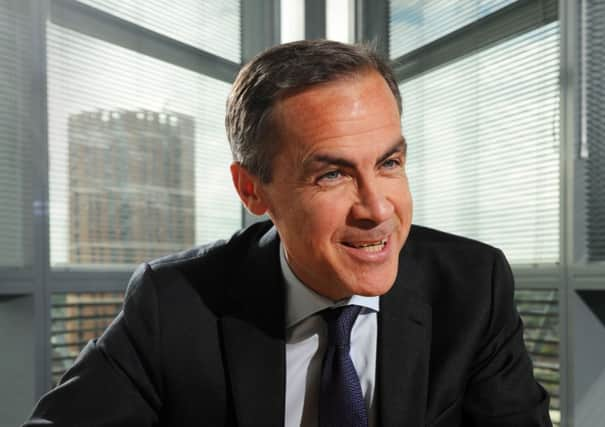Sterling soars, housebuilders tumble and borrowers ask about fixed-rates - the fallout from Carney’s Mansion House speech


Government bond yields soared, construction stocks tumbled and interest rate futures priced in a first hike by December after Mr Carney said rates could rise sooner than financial markets had thought - his most hawkish signal to date.
“There’s already great speculation about the exact timing of the first rate hike and this decision is becoming more balanced,” Carney said in a speech late on Thursday. “It could happen sooner than markets currently expect.”
Advertisement
Hide AdAdvertisement
Hide AdRob Wood, chief UK economist at German bank Berenberg, said Mr Carney’s shift reflected the economy’s buoyancy.
“It is flying now. Employment is rising at a record pace and we see no sign of economic growth slowing from its current approaching 4 percent annualised pace,” he said.
Shares in the country’s biggest housebuilders including Barratt Developments and York-based Persimmon, fell more than 4 per cent, while Bovis Homes, Taylor Wimpey, Bellway and Berkeley were down between 3 and 4 percent.
Land Securities and British Land, the country’s two largest listed property developers, were also hit, with shares in both groups down over 3 per cent.
Advertisement
Hide AdAdvertisement
Hide AdFirst Direct, the Leeds-based lender, reported a “flurry of calls” on Friday morning from borrowers asking about fixed-rate loans.
Mr Carney said that more important than the timing of a first rate rise was that future increases be “gradual and limited”, in part due to high household indebtedness and a drag on growth from a stronger currency.
The record current account deficit was not an immediate cause for alarm, he added, but it was only sustainable to borrow from abroad to fund investment, not consumption.